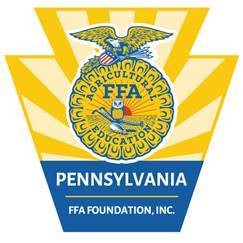The FFA Horse Judging Career Development Event (CDE) is more than just evaluating horses; it’s a comprehensive program designed to cultivate crucial social skills alongside equine expertise. This guide will walk you through the key components of the CDE, highlighting how participation enhances your abilities in teamwork, communication, and critical thinking – skills vital for any future career path.
Participating in the Horse Judging CDE involves evaluating and ranking horses based on breed characteristics, conformation, and performance. As a team member, you’ll collaboratively tackle challenges related to equine selection, management, nutrition, and production. A significant aspect of the competition is delivering oral reasons, where you articulate and defend your horse placements to judges. This exercise is invaluable for developing your public speaking and persuasive communication skills.
Career Pathways and Skill Development
The skills honed in the Horse Judging CDE are transferable to a wide array of career fields. Whether you envision yourself working directly with horses or in a related industry, the CDE provides a solid foundation. Potential career opportunities span across:
- Agricultural and Forestry Production: Consider roles as a horse trainer, rancher, or artificial breeding technician.
- Marketing, Merchandising, and Sales: Explore careers in equine sales or as a horse buyer.
- Science and Engineering: Pursue professions like equine veterinarian, nutritionist, or dentist.
- Education and Communication: Share your knowledge as a postsecondary teacher or extension specialist.
These career paths fall under broader Career Clusters including Agricultural and Forestry Production, Management and Financial Specialties, Marketing and Sales, Science and Engineering, Social Services, and Education and Communication. The CDE directly contributes to skills needed in each of these areas, especially interpersonal and communication skills essential for success in any professional environment.
Event Overview and Key Components
The Horse Judging CDE typically includes the following components, each designed to test and enhance different skills:
- Written Exam (50 points): This multiple-choice exam assesses your general equine knowledge. It requires focused study and retention of information, improving your academic and learning skills.
- Judging Classes (50 points each): You’ll evaluate 5-6 classes, including 3-4 halter classes (assessing conformation) and 2 performance classes (judging horses in action). This component sharpens your observation, analytical, and decision-making skills.
- Oral Reasons (50 points each set): Delivering two sets of oral reasons (one halter, one performance) is crucial. This is where your communication skills shine. You must clearly and persuasively justify your placings, enhancing your public speaking, logical reasoning, and confidence.
- Team Event Scenario (100 points): Working collaboratively with your team to solve a scenario related to equine management, marketing, or welfare. This component is specifically designed to foster teamwork, problem-solving, and collaborative decision-making. Example scenarios may involve marketing strategies, addressing current trends in the equine industry, animal welfare and first aid protocols, equine nutrition planning, or anatomy and management challenges.
 Pennsylvania FFA Association Logo 2020 – Promoting Leadership and Career Development in Agricultural Education
Pennsylvania FFA Association Logo 2020 – Promoting Leadership and Career Development in Agricultural Education
Preparation and Resources for Success
To excel in the Horse Judging CDE and maximize your social skills development, thorough preparation is key.
Before the Contest:
- Review CDE Guidelines: Understand the rules, regulations, and expectations for the event.
- Appropriate Dress: Official FFA dress is required on both days of the event. Ensure you adhere to the dress code, including closed-toe shoes.
- Study and Practice: Utilize available resources to prepare for all components of the CDE, particularly focusing on equine knowledge and practicing oral reasons delivery.
Individual Materials to Bring:
-
2 Pencils: For the written exam and note-taking.
- Notebook paper or Portfolio: For taking notes during judging classes.
Resources for Study:
- 4-H Horse Judging Guide.
- PSU, College of Agriculture Extension Service materials.
- “Horses and Horsemanship” by Ensminger, M. E.
- “Equine Science” 2nd Edition by Parker, Rick.
- Breed association materials from organizations like the American Quarter Horse Association and American Paint Horse Association.
- Resources from other breed associations.
Key Rules and Tiebreakers:
- Disqualification: Cheating, talking during exams or judging, or using electronic devices are grounds for disqualification. Upholding integrity and ethical conduct is a crucial aspect of FFA events.
- Tie Breaker: In case of ties, the written exam score is the first tiebreaker, followed by scores in specific halter and performance classes.
Conclusion
The FFA Horse Judging CDE is an exceptional platform for developing both equine expertise and essential social skills. By actively participating and preparing diligently, you will not only enhance your knowledge of the equine industry but also cultivate valuable skills in communication, teamwork, decision-making, and problem-solving. These skills are highly sought after in any career, making the Horse Judging CDE a significant step towards your future success. Use this study guide to prepare effectively and make the most of this enriching experience.